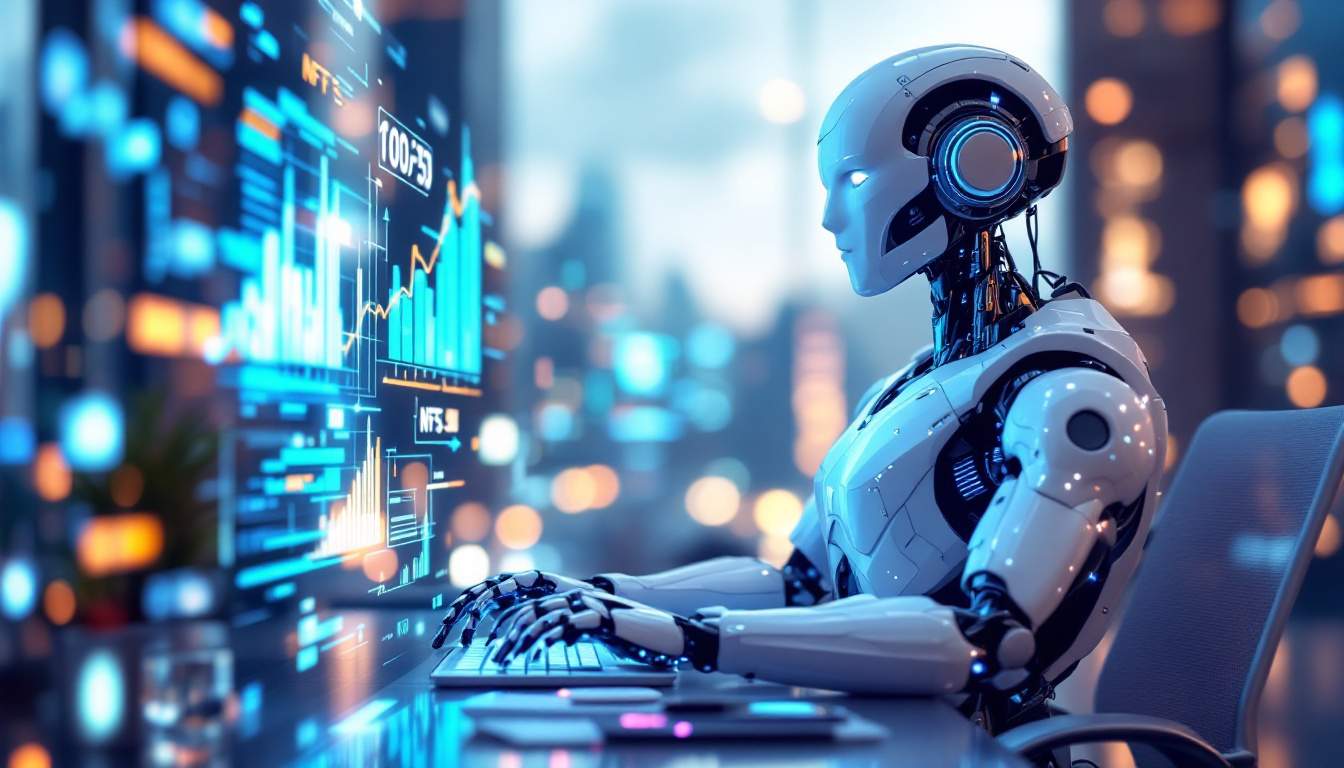User Tag List
Results 1 to 1 of 1
-
01-30-2025 #1Moderator


- Reputation
- 1
- Join Date
- Jul 2024
- Posts
- 2,685
- Thanks G/R
- 1/0
- Trade Feedback
- 0 (0%)
- Mentioned
- 0 Post(s)
- Tagged
- 0 Thread(s)
Crypto Game Economies & AI: The Future of Sustainable Play-to-Earn Models
Crypto Game Economies & AI: The Future of Sustainable Play-to-Earn Models

Introduction
The gaming industry has witnessed a paradigm shift with the rise of blockchain-based play-to-earn (P2E) models. However, sustainability remains a significant challenge. Many early P2E games experienced economic collapses due to inflationary tokenomics and unsustainable reward structures. The integration of artificial intelligence (AI) presents a promising solution to enhance economic stability, user engagement, and scalability in P2E ecosystems. This blog explores how AI can revolutionize crypto game economies and create a future where gaming is both rewarding and sustainable.
The Evolution of Play-to-Earn Games
Play-to-earn gaming gained prominence with blockchain-based titles like Axie Infinity, Decentraland, and The Sandbox. These games allowed players to earn digital assets with real-world value. However, most early P2E models struggled with:
- Token Inflation: Excessive token issuance led to devaluation.
- Unsustainable Rewards: Over-reliance on new player inflows to sustain rewards.
- High Entry Barriers: Expensive NFTs restricted accessibility.
- Lack of Engagement: Many games lacked compelling gameplay, reducing long-term retention.
AI-driven solutions can address these issues by optimizing in-game economies, improving engagement, and ensuring fair distribution of rewards.
AI-Powered Dynamic Economies
AI can play a crucial role in balancing game economies by adapting supply and demand mechanisms in real time. Key applications include:
1. Smart Tokenomics
AI can monitor transaction volumes, player behaviors, and market trends to dynamically adjust token supply. By leveraging predictive analytics, AI can prevent hyperinflation and ensure token value stability. Examples include:
- Dynamic Reward Adjustments: AI-driven algorithms can adjust staking and earning rates based on economic health indicators.
- Adaptive NFT Pricing: AI can analyze marketplace trends to recommend fair NFT prices, preventing market saturation.
2. Intelligent Asset Distribution
Traditional P2E models often suffer from wealth concentration among early adopters. AI can ensure equitable asset distribution by:
- Adjusting rewards based on player engagement and contribution.
- Detecting and mitigating bot activities to prevent exploitation.
- Implementing progressive taxation mechanisms to encourage fair play.
Enhancing Gameplay with AI
Beyond economic stability, AI can revolutionize gameplay to make P2E games more immersive and engaging.
1. AI-Generated Content & NPCs
Procedural content generation powered by AI can create diverse game environments, quests, and storylines, reducing development costs and increasing replayability. AI-driven NPCs can interact with players in a more lifelike manner, enhancing engagement.
2. Personalized Gaming Experience
Machine learning models can analyze player behavior to tailor game experiences, such as:
- Recommending quests and challenges based on user preferences.
- Adjusting difficulty levels dynamically to match player skills.
- Enhancing matchmaking for fair competitive gameplay.
3. AI-Driven Fraud Prevention
AI can detect fraudulent activities like multi-account farming, bot usage, and token manipulation by analyzing transaction patterns and gameplay behavior. This ensures a fair ecosystem for all players.
AI and Decentralized Governance
A decentralized autonomous organization (DAO) governs many blockchain games. AI can enhance DAO decision-making by:
- Analyzing on-chain data to recommend policy changes.
- Automating voting processes based on community sentiment analysis.
- Ensuring transparency by verifying smart contract executions.
The Future of AI in P2E Gaming
As AI continues to evolve, its role in P2E gaming will expand, leading to:
- Sustainable Virtual Economies: AI-powered models will enable games to sustain economic viability without relying on new player influxes.
- Seamless Player Experience: AI-driven automation will eliminate manual processes, enhancing efficiency and user satisfaction.
- Mainstream Adoption: AI-enhanced game design and economy management will attract more traditional gamers to the Web3 space.
Conclusion
The fusion of AI and blockchain gaming has the potential to resolve many of the challenges plaguing P2E models. By leveraging AI-driven tokenomics, dynamic gameplay, and decentralized governance, the next generation of crypto games can offer a sustainable and engaging experience. As AI continues to evolve, the future of play-to-earn gaming looks promising, offering new opportunities for players, developers, and investors alike.
Similar Threads
-
How AI is Revolutionizing Crypto Game Economies: Balancing Play-to-Earn Models
By Seithtanveer in forum CasinoReplies: 0Last Post: 01-30-2025, 04:25 AM -
Why AI-Generated NFTs Are the Future of Crypto Gaming
By Seithtanveer in forum CasinoReplies: 0Last Post: 01-28-2025, 06:19 AM -
The Future of Crypto Gaming: Leveraging AI for Maximum Earnings
By Seithtanveer in forum CasinoReplies: 0Last Post: 01-26-2025, 12:30 AM -
How Blockchain and AI Power the Future of Gaming Economies
By Seithtanveer in forum CasinoReplies: 0Last Post: 01-25-2025, 04:45 AM -
Unlocking the Future of Crypto Games: Top AI Features in 2025
By Seithtanveer in forum CasinoReplies: 0Last Post: 01-24-2025, 04:26 AM















 Reply With Quote
Reply With Quote



